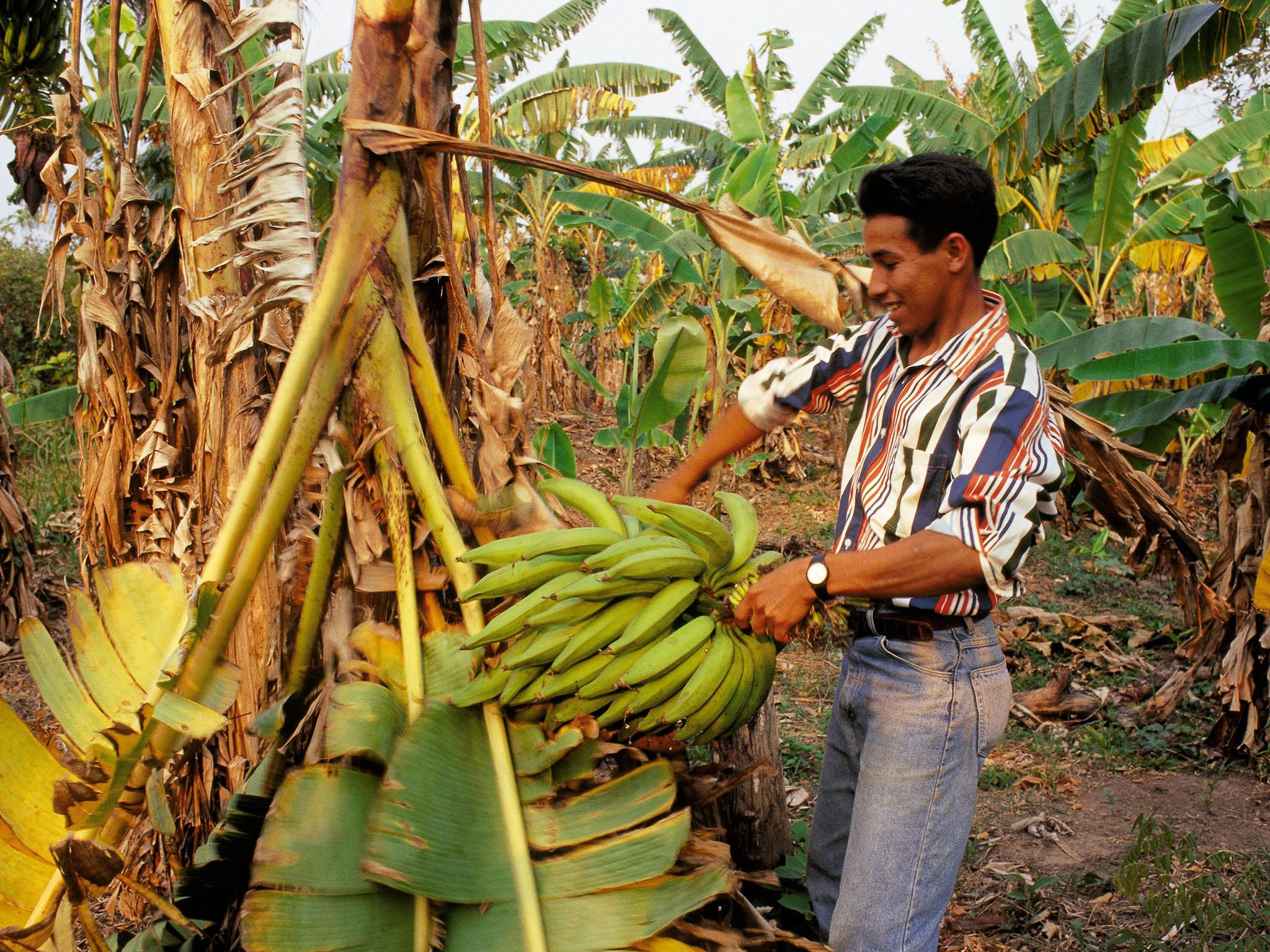Will Sainsbury's 'fairly Traded' ensure money goes back to growers?
Should shoppers be convinced by self-regulated fairtrade?

Bananas, socks, coffee, gold, body butter, roses. The list of products that can be bought under the Fairtrade banner is lengthy and disparate.
The wide-ranging products are usually pricier than the standard alternatives, reassuringly so for consumers who want to know that when they purchase an item a fair amount is paid to the original producer.
In a market dominated by large corporations using their immense buying power to drive down prices, that can be the difference between barely surviving and thriving for the growers and producers on the ground.
And it matters to consumers; the Ethical Markets Report 2016 revealed that the value of all ethical spending in the UK reached £38bn in 2015, reflecting an average growth of 8.5 per cent.
Now, in a controversial move, Sainsbury’s has said it intends to move away from the Fairtrade branding on some of its products and instead launch its own “Fairly Traded” logo. For now, this is just for its own-brand tea, but the expectation is that this will soon be rolled out across the rest of its range.
But if the buying process is being checked by an in-house team rather than an independent body, how can consumers be sure it’s worth spending the extra?
Conscious consumers
Consumers have challenged Sainsbury’s over the move, with petitions springing up online. The Fair Trade Foundation itself has published an open letter to the supermarket, unequivocally condemning the move on behalf of its members.
“We, Fairtrade tea farmers, workers, producer members of Fairtrade Africa, are unanimous in our decision to reject this unequal partnership with the Sainsbury’s Foundation. We believe it will strip us of rights and benefits attained over the years under the Fairtrade system,” the letter stated.
“As producers we are very aware that when consumers choose Fairtrade purchases, they expect the benefits to go directly to producers. Premium is not donor money but is created through a commitment to purchase Fairtrade products by conscious consumers.”
However, a spokesperson for the supermarket said the new scheme will benefit farmers: “The pilot aims to build on the Fairtrade model, providing a guarantee that our tea farmers will continue to receive all the funding currently in place, or more.
"This includes the minimum price guarantee and social premium to match Fairtrade levels – and crucially, additional benefits, including longer-term commercial relationships and individually tailored advice, data and specialist support on the ground.
“The pilot will be underpinned by the highest and broadest set of sustainability standards, which go further than existing certifications to provide farmers with advanced information across social, economic and environmental aspects of their business.”
The supermarket also told The Independent that all the farmers involved in the pilot support it.
Growth industry
At present, the UK accounts for 25 per cent of global Fair Trade sales; consumers in this country have a real and genuine appetite for produce that is certified free of exploitation.
In fact, earlier this year it was announced that sales of Fairtrade goods had started to rise again in 2016, for the first time since 2013.
CEO of the Fairtrade Foundation Michael Gidney said: “Despite all the challenges and turbulence of 2016 which has seen the grocery market contract and the pound plummet shoppers are still supporting Fairtrade to deliver a better deal for the farmers who grow some of our favourite ingredients.
“Growth in some of our most iconic products such as bananas and coffee have continued, whilst new additions show the continued desire to make trade fair.”
And companies like Mars and Greggs began stocking some Fairtrade ingredients, boosting the value of the market. But it is becoming harder for consumers to buy with confidence as some corporations are choosing to do away with Fairtrade affiliation in favour of their own in-house schemes.
Sainsbury’s is following companies such as Cadbury in moving towards a self-verified ethical certification. However, there’s a chance that such moves are going to backfire.
Many consumers don’t mind paying extra for ethical produce. In fact, while it’s not sold under a Fairtrade banner, a recent survey found that more than 80 per cent would be willing to pay more for milk to ensue British farmers received a fair price.
And research from the Association of Accounting Technicians shows that customers are willing to pay more for products or services provided by a company that is transparent and which treats employees well.
A survey carried out by MediaCom in the spring found that 63 per cent of consumers believe brands have a responsibility to give something back to society and 80 per cent say they must take steps to minimise their impact on the environment.
Yet shoppers are growing increasingly cynical of ethical pledges from big brands with 65 per cent suspecting that companies over-state their green credentials and 45 per cent describing themselves as sceptical of brands that support good causes.
British shoppers may be willing to pay extra to ensure producers are fairly treated. But times are tight and inflation is high, so whether that will last once the message is diluted by retailers’ own in-house standards remains to be seen.
Subscribe to Independent Premium to bookmark this article
Want to bookmark your favourite articles and stories to read or reference later? Start your Independent Premium subscription today.

Join our commenting forum
Join thought-provoking conversations, follow other Independent readers and see their replies